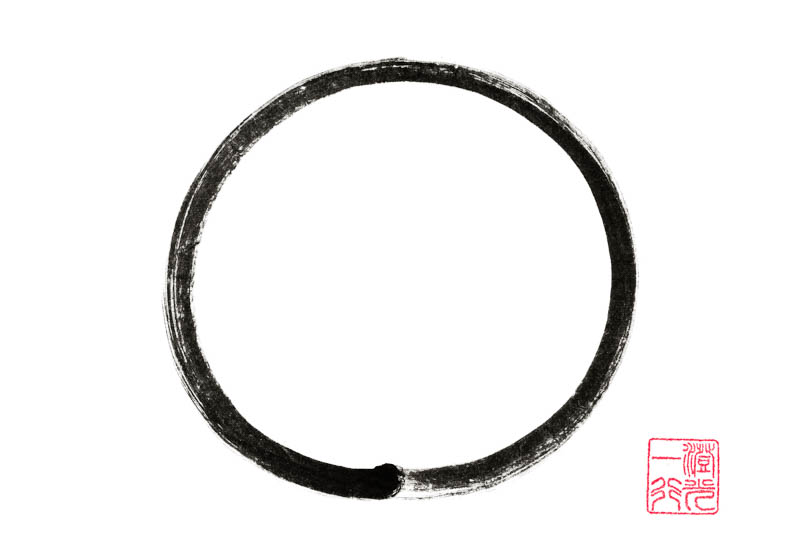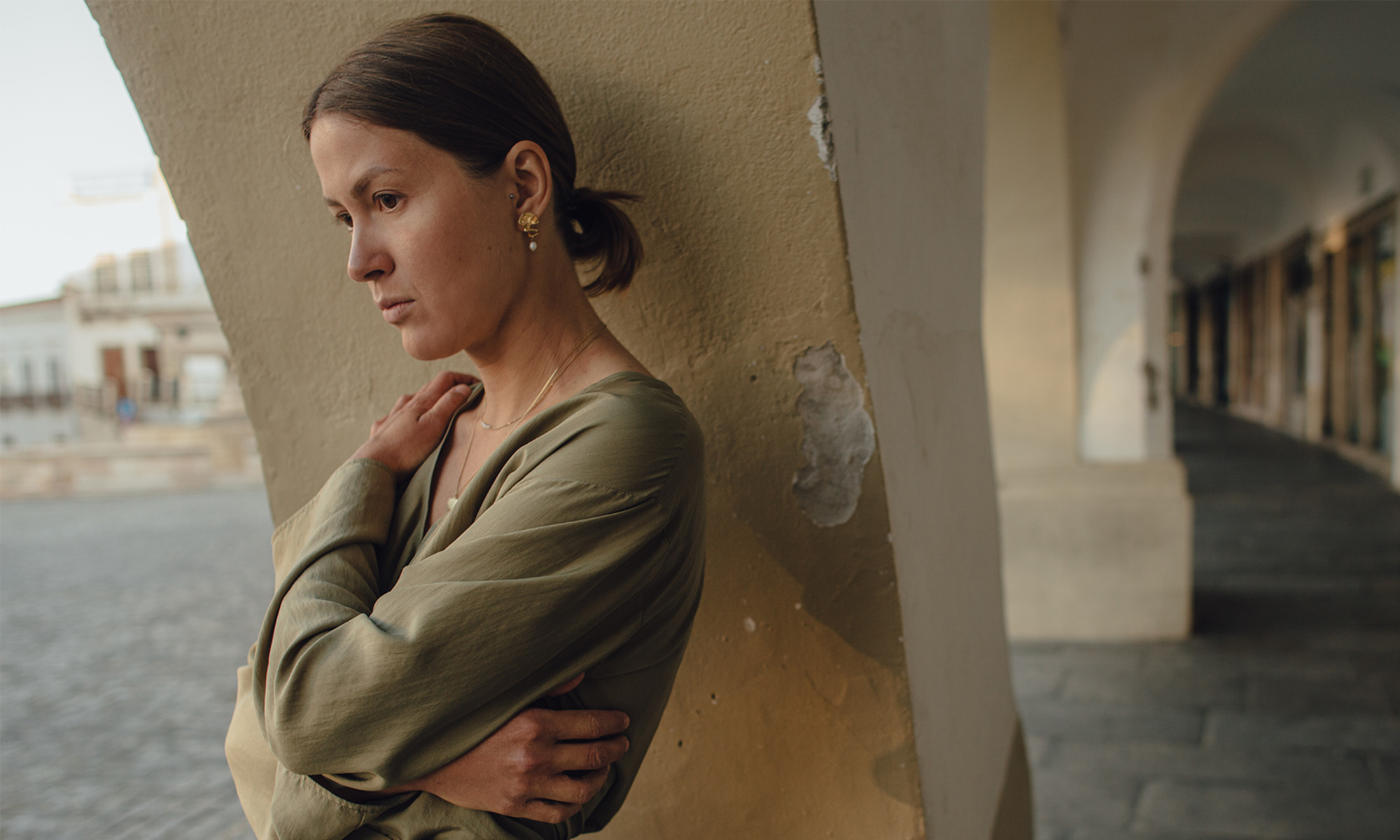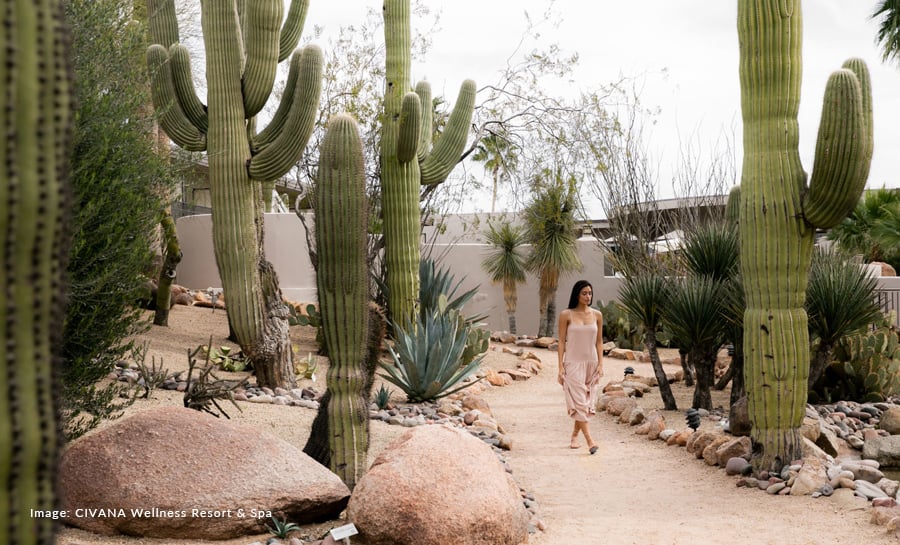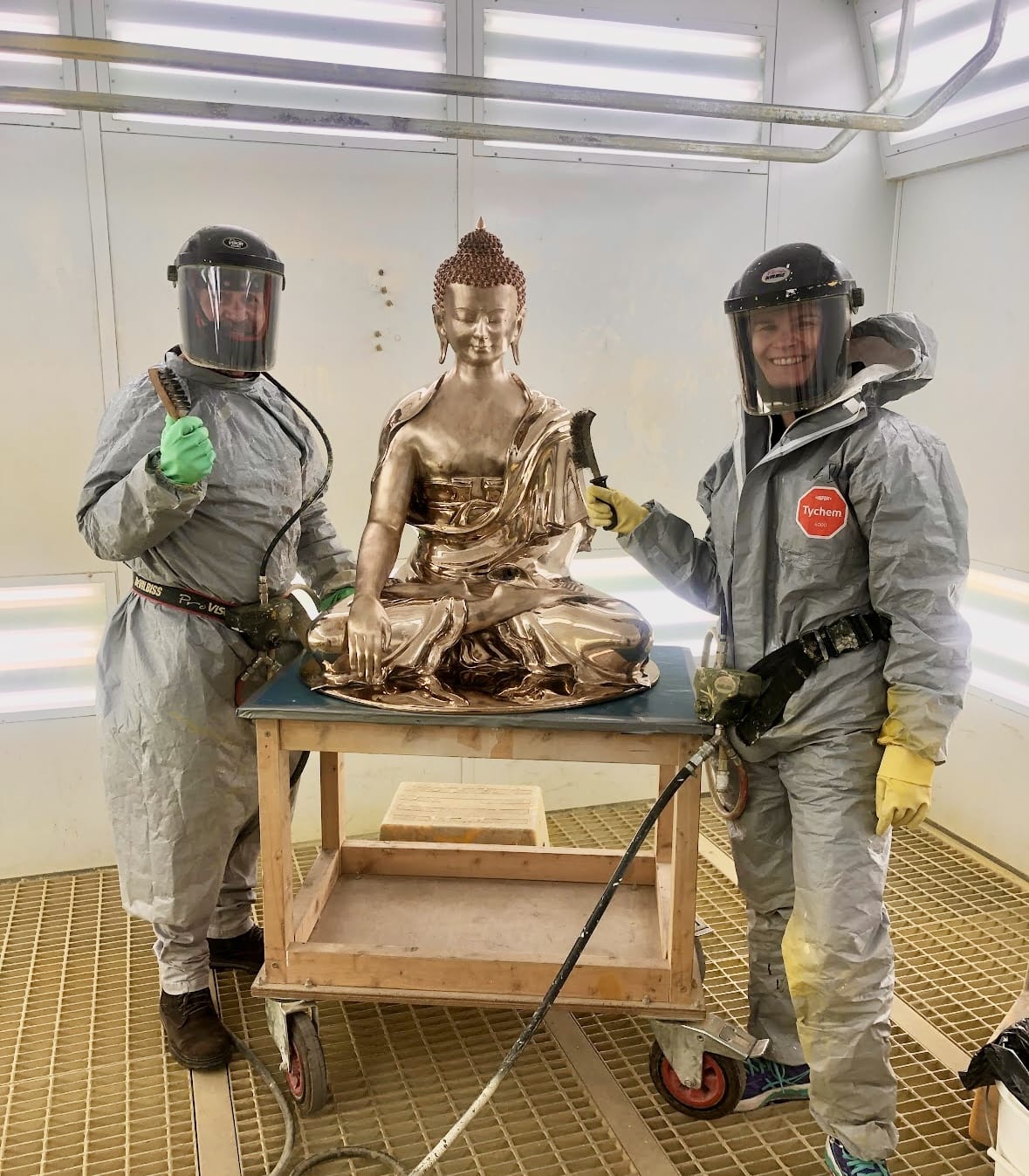Peace Becomes Possible: An Interview with Thích Nhất Hạnh
In tribute to the curiosity of Alan Senauke (1947–2024) The post Peace Becomes Possible: An Interview with Thích Nhất Hạnh first appeared on Tricycle: The Buddhist Review. The post Peace Becomes Possible: An Interview with Thích Nhất Hạnh appeared...

In tribute to the curiosity of Alan Senauke (1947–2024)
Alan Senauke and Wes Nisker in conversation with Thich Nhat Hanh Feb 08, 2025 "Zen Circle" by Thich Nhat Hanh. Image via Wikicommons.
"Zen Circle" by Thich Nhat Hanh. Image via Wikicommons.From 1984 to 2015, Inquiring Mind was a semiannual print journal dedicated to the transmission of buddhadharma to the West. The archive contains all thirty-one years of Inquiring Mind interviews, essays, poetry, art, and more—now hosted by the Sati Center for Buddhist Studies. Please consider a donation to help with the ongoing expenses to keep the site running.
When Thích Nhất Hạnh was in California last September, I joined an interview with him conducted by San Francisco Chronicle religion editor Don Lattin. A small group of us—including Wes Nisker, Barbara Gates, Sister Chan Khong, cofounder of Plum Village, and Arnie Kotler and Therese Fitzgerald from the Community of Mindful Living—had tea with Thầy on a sunny afternoon outside his cabin at Kim Son Monastery, near Watsonville. A retreat for Vietnamese monks and nuns was under way. Temple bells rang true in the mountain air.
Don Lattin’s interview dealt with basics for people unfamiliar with Thầys life and teachings. But Wes and I got to squeeze in a few questions addressing our own uncertainties. Later, as we were gathering empty teacups and packing tape recorders away, Thích Nhất Hạnh reminded us that if we were to be Buddhist activists, we had to remember our Buddhist practice of mindfulness moment by moment.
– Alan Senauke, Spring 1998
Alan Senauke (AS): I remember, in 1991, when you were here. The Gulf War was happening, and the verdict had come in from the Rodney King case. You spoke of seeing those videotapes. It was a difficult time, and you spoke of the challenge of your own emotions in that situation. I remember the talk. Over the last few years, at retreats and talks, what I’ve been hearing you speak about has been the pain within our families and within ourselves. Could you say something about the current emphasis of your teaching?
Thích Nhất Hạnh (TNH): My practice and my teaching are always focusing on the real difficulties that we are having in the present moment. There is violence within, there is loneliness within, there is anger within, there is restlessness within. And we suffer. And because we suffer, we are not able to help the people around us. If we have the desire to help, we cannot help because we don’t have enough peace inside. The people in our society are very individualistic, selfish, each for himself, each for herself, alone.
In our elementary schools, high schools, and universities, everyone is thinking of himself or herself—focusing on going to school, getting a diploma, having a means to survive later on, getting a job. You don’t have the time to care, and maybe you are not interested in other people. So teacher is teacher, student is student, and school is no longer a family like it used to be. In the past, the teacher was looked upon like a father, and the students were like children in the same family. In Asia we used to have that very strongly, and I think in the West it did exist, a spirit of a family within the context of public school. Now, that is gone. Each is for himself or herself, and in such an environment, we cannot train ourselves in understanding each other and loving each other. That is why when we graduate and go into society, we continue to be out for ourselves, and it even gets worse, because out there we have more difficulties than we did when we were still in school.
I think it is useful to talk about these kinds of things. You recognize the pain within yourself, and you try to work it out with the support of other people, brothers or sisters in the dharma, a teacher, a sangha, a community. Good practice can help us address these issues very radically. If you are able to walk mindfully, to breathe mindfully, to be able to live each moment of your daily life with more peace, solidity, and freedom, you have already begun to help your society and your people.
Wes Nisker (WN): When he returned from Beijing before the Chinese had invaded Tibet, the Dalai Lama spoke of how amazed he was that these people called themselves Communists, because he saw himself as half-Buddhist and half-Marxist. Do you think that socialism is a system that has any resonance with Buddhism?
TNH: Why do we have to compare one notion with another notion? Socialism should not be a doctrine that you have to accept at the outset in order to start. Socialism can simply be daily life. If you can improve your quality of being, of walking, of talking, of eating, you are already a socialist, because by being more of yourself, by improving your quality of life, you change society without making any declaration.
AS: Is there a need to make a declaration?
TNH: You can make a declaration by the way you drink your tea.
WN: Why do we get caught in our individualism, in our selfishness? Do you think that human beings are innately selfish, or does buddhanature mean that we all have the innate ability to see clearly, to be loving, and to share?
TNH: There is a tendency in us to be individualistic, a seed of egoism, but that isn’t all that is in us. There is also the seed of togetherness, the desire to help and be kind to others. If you are exposed to an environment where the negative seed is watered every day, that seed will grow and manifest in your daily life, strongly. But if you have the chance to be exposed to a loving, understanding environment where the seed of compassion, of loving-kindness, can be watered every day, then you become a more loving person. We have both tendencies. These tendencies are somehow organic, so they need not be enemies of each other.
It is like suffering and happiness. We have the tendency to run away from suffering and to look for happiness, but, in fact, if you have not suffered, you have no chance to experience real happiness. Suffering is the base of happiness.
⧫
From the Spring 1998 issue of Inquiring Mind (Vol. 14, No. 1). Text © 1998–2020 by Don Lattin, Alan Senauke, Barbara Gates, Wes Nisker, Thich Nhất Hạnh, and Inquiring Mind.
Related Inquiring Mind articles:
Invoking the Wide World: An Open Letter to Our Teachers A System of Suffering The Reluctant Bodhisattva![]()
Thank you for subscribing to Tricycle! As a nonprofit, we depend on readers like you to keep Buddhist teachings and practices widely available.

 Fransebas
Fransebas 
































